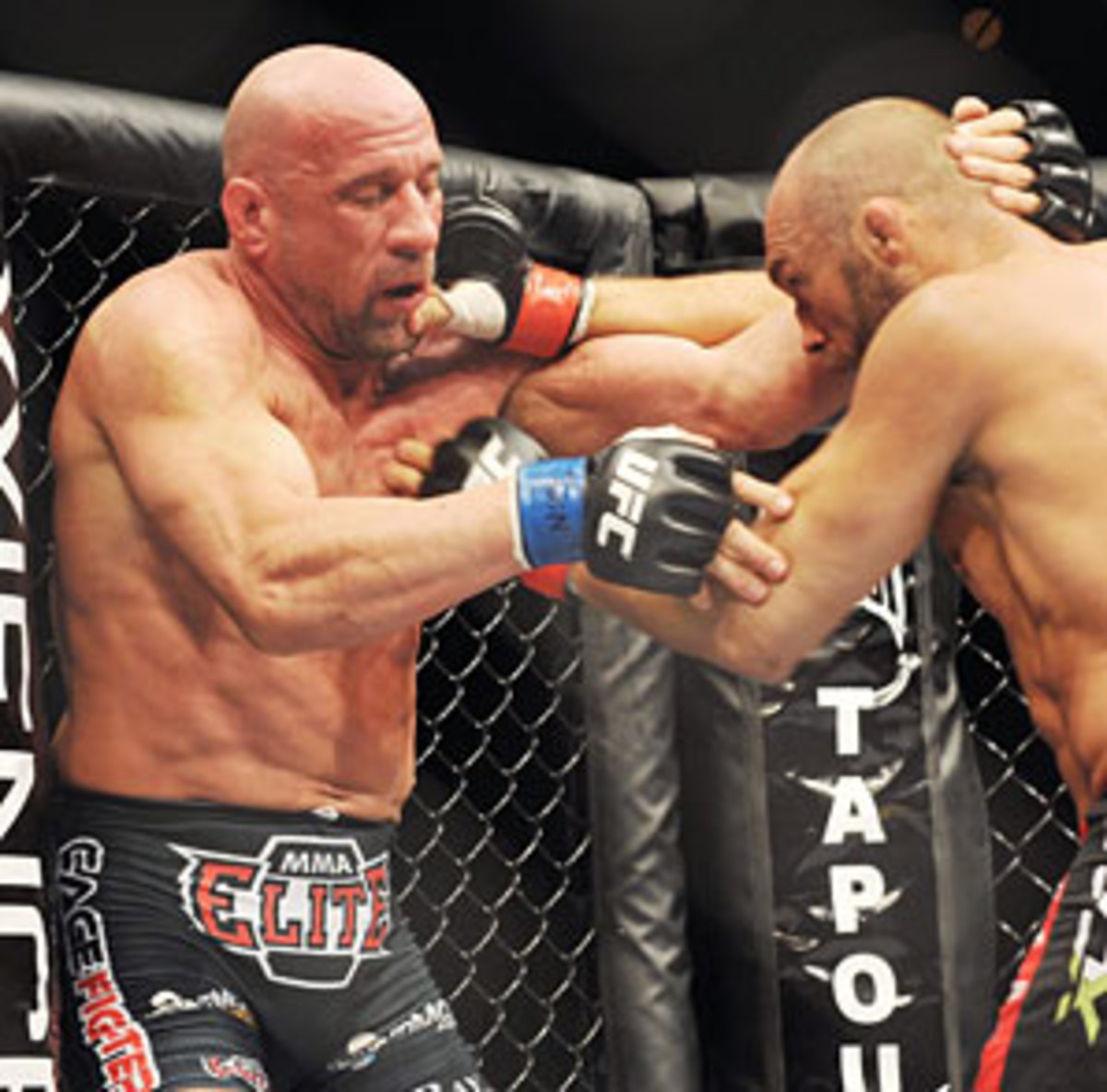Coleman's UFC career meets unceremonious end after loss
Mixed-martial-arts great Mark Coleman learned this week that his services would no longer be needed by the UFC. After nearly 14 years as an MMA fighter, beginning with the days of bare knuckles and headbutts and continuing on through the initial decline of the sport in the U.S., the golden days of the Pride organization in Japan, and then back home to the UFC again just last year, the 45-year-old Coleman has been given his walking papers.
Think of it as the UFC's subtle way of saying, "You don't have to go home to your rocking chair just yet, but you can't stay here."
Coleman, not surprisingly, isn't ready to go. Who ever is? Discussing the news (which found its way into the headlines before Coleman heard it from the UFC for himself) yesterday with MMA FanHouse, he insisted he was "definitely going to keep fighting," whether inside the UFC or out.
We've seen this movie before. The details -- such as which second-rate promotion will attempt to make a quick buck off what's left of his name, and which nobody opponent they'll shove in the cage opposite him -- those change. The ending never does.
To Coleman, the situation doesn't seem so dire. He insists that what he needs is to "train harder," pour out a little more sweat in the gym, and close up some of the holes in his game. All his life that's been the right answer. It's the solution that years worth of experience has taught him to depend on. Now the entire equation has changed, and he's still trying to solve it the same way.
Like any of us, fighters are people with the virtues of their faults. As MMA pioneer Ken Shamrock once explained to me, in order to be a world-class fighter you have to be wired a certain way.
You have to be the kind of person who can break his hand on another man's skull and regard it only as a reason to start hitting him with the other hand. You have to be the kind of person who, after suffering a brutal beating against an obviously superior opponent, will chalk it up to pre-existing injuries or a bad call from the ref or even just bad luck. You have to be the kind of person who remains absolutely sure that things will turn out differently in the rematch.
If you're not that kind of person, regardless of how good an athlete you might be, eventually you'll quit. You'll get your nose broken for the third time, or you'll find yourself heading to the hospital for stitches after an unfortunate sparring session, and you'll catch a case of good sense. You'll wonder why you're doing this to yourself, to your body. Surely there's got to be an easier way to earn a living, you'll think. That's when you begin to let go of your dream like an exhausted climber letting go of the ledge that he can't pull himself up on -- first a little bit at a time, and then all at once.
The fighter doesn't think this way. He tells himself that once he pushes through these injuries and gets back on a winning streak everything will be fine. When the years start to catch up with him and the injuries linger rather than heal, nothing has prepared him to make the decision to quit.
Then, of course, there's also the issue of money.
Coleman doesn't have anything else to prove in this sport, but it is the best way he knows to earn a dollar. It's not as if he got paid like today's superstars back when he won UFC 10 or the 2000 Pride Grand Prix. So chances are he'll keep at it, scratching out a living in the smaller shows and beating up guys you never would have heard of otherwise.
If you ask younger fighters about the inevitable end of their career, they'll tell you they know it's out there. Some are even planning for it financially. To many, they know of it the way we all know of our own impending death. Intellectually, we understand it's inescapable, and yet some small part of us doesn't truly believe it.
The guys in their 20s or early 30s, the ones for whom the future is still more of a promise than a threat, when they imagine the end of their fighting lives they probably envision going out on an inspiring victory. Maybe they see themselves retiring with the belt, offering one last tearful goodbye to the fans. Most likely they don't imagine being unceremoniously dropped from their contracts after a one-sided loss and then vowing to fight on somewhere, anywhere, while the rest of the sport cringes on their behalf.
Watching what Coleman is going through now, I can't help but wonder about those young fighters. What do they see when they look at him? A legend of the sport? A cautionary tale? Do they look at him, still as passionate and proud and determined as ever, despite the natural erosion of his physical gifts, and see anyone like themselves?






